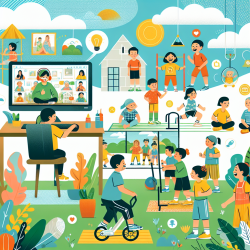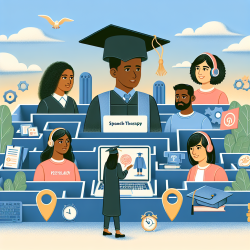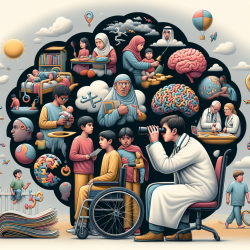The COVID-19 pandemic has disrupted many aspects of life, particularly for children with disabilities such as cerebral palsy (CP). A recent study titled "The Effects of an Online–Offline Hybrid Exercise Program on the Lives of Children with Cerebral Palsy Using Wheelchairs during the COVID-19 Pandemic in Korea" published in the International Journal of Environmental Research and Public Health, sheds light on innovative ways to improve the lives of these children through hybrid exercise programs.
The study involved 26 children with CP who participated in a six-week game-based online-offline hybrid group exercise program. The outcomes measured included Reintegration to Normal Living (RNL), social interaction levels, and quality of life. The results showed significant improvements in RNL and quality of life, while social interaction levels showed positive but minimal changes.
Key Findings:
- Reintegration to Normal Living (RNL): There was a significant improvement in RNL scores, particularly in the ability to deal with life events, participate in leisure activities, and move around in the neighborhood.
- Quality of Life: All aspects of quality of life improved significantly, including overall life satisfaction, satisfaction with physical health, and satisfaction with psychological health, emotions, and mood.
- Social Interaction: Although there was no significant change in social interaction levels, participants reported positive changes in their ability to interact within various social contexts.
Practical Implications for Practitioners:
- Incorporate Hybrid Programs: Practitioners should consider integrating both online and offline elements in their therapy programs. The study shows that a combination of online and offline sessions can yield significant benefits in terms of RNL and quality of life.
- Focus on Upper-Body Strength: The exercise program focused on upper-body strength, which is crucial for wheelchair users. This focus not only helps in improving physical strength but also contributes to better control of the wheelchair, thereby enhancing independent mobility.
- Use Game-Based Activities: Incorporating game-based activities can make the exercise sessions more engaging and enjoyable for children, thereby encouraging consistent participation.
- Monitor and Adjust: Regularly assess the progress of the children and make necessary adjustments to the program to meet their evolving needs.
Encouraging Further Research:
While the study presents promising results, it also highlights the need for further research. Future studies should aim to include larger sample sizes and control groups to validate the findings. Additionally, developing well-designed online or hybrid exercise programs that facilitate social interaction can further enhance the benefits for children with CP.
To read the original research paper, please follow this link: The Effects of an Online–Offline Hybrid Exercise Program on the Lives of Children with Cerebral Palsy Using Wheelchairs during the COVID-19 Pandemic in Korea.










